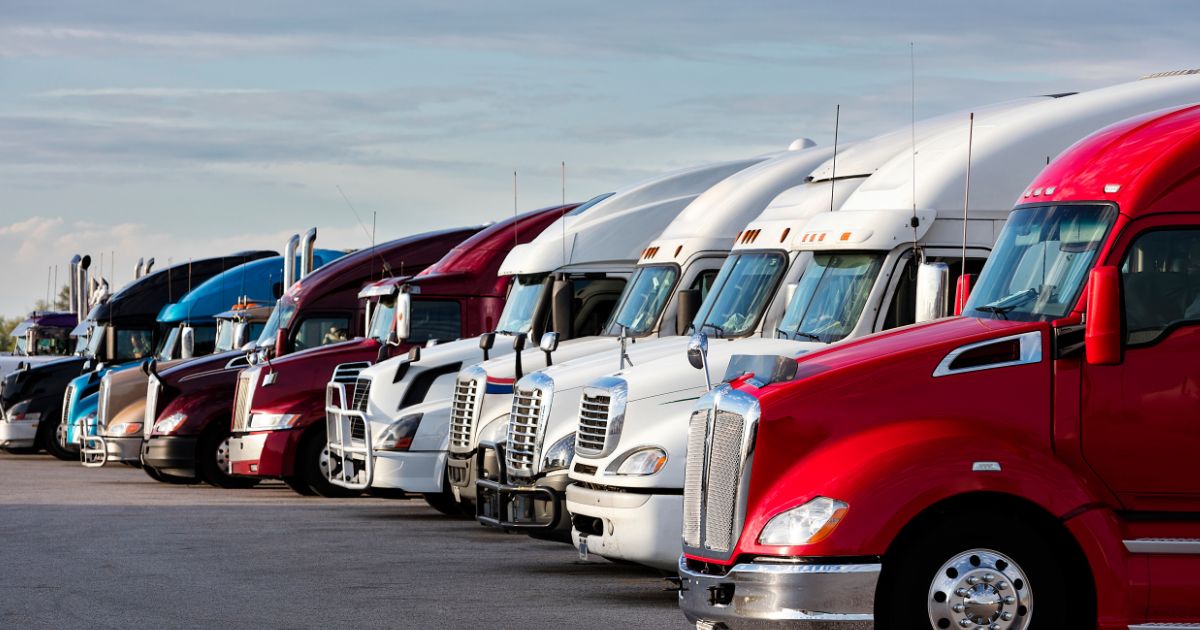The Fleet Clean franchise is a mobile truck- and fleet-washing concept. Launched around 2009, it specializes in on-site cleaning for commercial vehicle fleets (big rigs, trailers, etc.). Fleet Clean USA is headquartered in Georgia and began franchising around 2013. Today the brand operates roughly 50–60 locations nationwide (about 57 as of the latest data), most run by franchisees. In its industry, Fleet Clean touts decades of experience and a reputation for quality and trust. It has carved out a niche in the $0.5–1B* commercial fleet-washing market (a small segment of the broader vehicle services industry). Notable milestones include developing a proprietary wash trailer (“Wash Box”) and eco-friendly systems like water reclamation.
What Franchisees Get
- Services Offered: Fleet Clean franchisees provide mobile washing for commercial vehicles. Core services include exterior washing, interior cleaning, pressure-washing of tires and undercarriages, and trailer washouts. These tailored services are sold on contract (typically weekly, bi-weekly, or monthly) to companies with fleets of trucks, buses, construction vehicles, etc. The focus is almost entirely B2B – serving logistics, manufacturing and distribution companies – rather than residential customers.
- Recurring Contracts & Revenue: A major selling point is the guaranteed revenue model. The Fleet Clean system emphasizes long-term service plans (e.g. weekly or monthly visits) so franchisees get steady cash flow. As their site notes, “Owning a Fleet Clean franchise offers the perk of guaranteed revenue through our weekly, bi-weekly, and monthly service plans”. Over time, building up a book of commercial accounts can create a stable, recurring income stream.
- Support and Systems: Fleet Clean provides extensive support to new owners. Franchisees receive training and ongoing guidance from the corporate team. The brand offers marketing and technology tools to drive business. For example, Fleet Clean supplies each owner with proprietary scheduling and invoicing software, custom-brand websites (SEO-optimized for local reach) and pay-per-click marketing support. They also provide an efficient billing/collections system so owners can focus on operations rather than paperwork. Importantly, Fleet Clean has a “Manage-to-Own” program: entrepreneurs with less upfront capital can start as an employee-manager and later transition to franchise ownership, tapping the brand’s mentorship and systems along the way.
- Equipment and Branding: To maintain consistency and quality, Fleet Clean provides or specifies specialized equipment. Franchisees use custom-designed wash trucks fitted with built-in water tanks, pressure systems and Fleet Clean’s proprietary Wash Box unit. This state-of-the-art gear is designed to recycle water (meeting environmental regulations) and clean large vehicles effectively. In short, Fleet Clean operators get the perks of a national brand and proven business model – franchisor support, tech tools, and marketing – while working in the mobile truck-washing niche.
Startup Costs and Ongoing Fees
- Initial Investment: The Fleet Clean franchise requires a significant capital outlay. According to official disclosures, the total startup costs range roughly from $172,000 to $459,000. The largest expenses are the trucks and washing systems: a truck chassis runs about $45k–$70k and the installed wash trailer (Wash Box) can be another $64k–$78k. Other initial costs include the franchise fee ($10k–$150k), site setup (garage or lot lease), signage, supplies, and several months of working capital (often $25k–$50k). In short, new owners should plan on well over $200k as a base investment to get up and running (often closer to $300k+ once all equipment, licenses, and initial payroll are included).
- Franchise Fees: The ongoing fees for Fleet Clean are also notable. The initial franchise fee is surprisingly low in some cases ($10k) but can be up to $150k, depending on factors like territory. After opening, the royalty fee is about 8–8.5% of gross revenue, and an advertising/marketing fee of around 2–2.5%. There may also be required contributions to marketing co-ops and local advertising (e.g. $250–$2,500 to start). In sum, a Fleet Clean owner pays roughly 10–11% of sales back to the franchisor each month for support and branding.
- Other Fees: Prospective franchisees should expect additional startup charges such as a site evaluation fee (up to $2,500), furniture/office equipment (phones/computers), insurance costs ($1.5k–$7k initially), and permits/licenses (often a few hundred to a few thousand dollars) according to franchisechatter.com. Vehicle licensing, fuel, and insurance for each wash truck are ongoing expenses as well. Overall, these costs are higher than typical service franchises because fleet washing is equipment-heavy.
How the Industry Itself Compares
Fleet Clean Industry Advantages
- Niche B2B Market: Fleet Clean operates in a specialized sector – cleaning commercial vehicle fleets – which generally has fewer direct competitors than broader service categories. Franchise marketing claims it’s a “niche market with limited competition,” making it easier to land high-paying clients. Large companies with fleets (like retailers, manufacturers, or food distributors) often prefer professional contracts over DIY washes.
- Steady, Contracted Work: Because trucks and trailers get dirty continuously, fleet cleaning tends to be recurring and predictable. Fleet Clean highlights that U.S. companies keep about 3.5 million trucks on the road, many subject to federal cleanliness standards. This regulatory requirement and ongoing need can make the business fairly recession-resistant, as companies usually cannot skip essential fleet maintenance.
- Recurring Revenue Model: Fleet cleaning is sold via service plans (weekly/biweekly/monthly), so owners can build a subscription-like income. Franchisees often report that once they secure a few fleet accounts, those repeat contracts kick in reliably (see Fleet Clean’s own promise of guaranteed recurring income). This means less downtime between jobs compared to one-off services.
- High-Tech Equipment: Fleet Clean emphasizes its advanced equipment and software as a perk. Each franchise is equipped with custom-built wash vehicles and a cutting-edge “Wash Box” that recycles water, along with proprietary software for scheduling and quoting. For owners, this can translate to more efficient operations and a modern branding edge (though it also contributes to the high upfront cost).
Compared to Commercial Cleaning Industry
By contrast, the commercial cleaning industry (offices, schools, hospitals, etc.) offers a much different profile. Some key advantages of a commercial cleaning franchise (like Assett) include:
- Much Larger Market: The U.S. janitorial market is enormous – roughly $97.6 billion annually – and growing (about 6–7% per year). It serves virtually every business sector. In practical terms, this means a cleaning franchise has a vastly larger pool of potential customers than the niche fleet-washing segment.
- Essential & Recession-Resilient: Cleaning services are considered essential for businesses, especially regarding health and safety (e.g. sanitation). Experts note that companies “cannot afford to compromise on cleanliness… even during economic downturns”. In other words, janitorial contracts tend to continue year-round, providing steady demand. By contrast, fleet cleaning can be more tied to industry cycles (e.g. if freight transport dips, fleet wash budgets may tighten).
- Predictable Recurring Income: Like fleet cleaning, commercial cleaning relies on contracts, but because the client base is so broad, revenues can be even more predictable. Janitorial firms typically lock in long-term agreements (annual or multi-year) with monthly billing. This contract model provides regular cash flow and lowers client churn.
- Lower Startup Costs: Launching a cleaning business requires far less capital. You usually need just a van or small truck, plus cleaning supplies (vacuums, mops, etc.), and perhaps employee uniforms. Equipment costs can often be under $50,000. By contrast, fleet washing needs huge outlays for trucks and wash bays. Lower startup means faster break-even and less financial risk.
- Lower Overhead: Cleaning franchises often don’t need an office or physical facility – the mobile crews go to clients. Overhead is primarily labor and supplies. As a result, profit margins can be healthy once scale is reached. Fleet-cleaning owners, however, must also cover vehicle maintenance, insurance, and fuel, which compress margins.
- Simplicity & Scalability: Commercial cleaning is conceptually simpler: scrub floors, wipe surfaces, etc. Training is straightforward, and systems are well-established. Owners can scale by adding crews or territories without a proportional increase in costly equipment. Semi-absentee ownership is common – with good management and systems, an owner may work only a few hours per week overseeing a team. (In fact, Assett’s hiring system is designed to automate most staffing tasks.)
- Emotional Buying vs. Business Buying: (For context) Other service industries like residential pest/mosquito control deal with homeowner emotions. Both fleet cleaning and janitorial are primarily business-to-business, so buying is more rational and contracted. However, pool of buyers is larger in cleaning, and contracts are more uniform.
In summary, commercial cleaning franchises leverage enormous, steady demand and require far less capital and complexity than fleet washing. They can produce million-dollar revenues for franchisees with relatively straightforward operations. For example, one analysis found that Fleet Clean franchisees averaged about $856K in gross sales (2023), whereas Assett’s cleaning franchises (serving similar markets of offices and facilities) routinely exceed $1.5M on average. These figures illustrate the difference in scale: cleaning businesses are simply operating in a much bigger industry.
How the Assett Franchise Compares
Simpler Systems, Bigger Potential
Assett Franchise is built on a streamlined commercial cleaning business model. Founder Matt Pencarinha created Assett after proving he could grow a cleaning company rapidly – his first location hit $557K in recurring revenue within 12 months of launch. Now franchised, Assett offers newcomers a turn-key cleaning business plan. Owners don’t need any prior cleaning experience; they receive a complete operations playbook, protected territory, and marketing support. Assett emphasizes that you can “know exactly what you need to do to rapidly build your business” by following their proven plan. The opportunity is significant: BizBuySell reports Assett’s average franchise was generating about $1.53 million in annual revenue in 2024 (far above the Fleet Clean average), and the brand highlights a “$1,000,000+/Year Potential” for franchisees. In short, Assett’s model trades complexity for scale – owners can tap into a much larger, $100B+ market with systems designed to deliver seven-figure revenue.
Automated Hiring = Time and Money Saved
One standout feature of Assett is its proprietary hiring system. Labor is a top challenge in service businesses, and Assett addresses it head-on. The company claims it has “the best hiring system in the entire commercial cleaning industry”. This automated platform handles recruiting, screening, and onboarding of cleaners. Founder Matt built it to remove the hiring bottleneck: he reports it saves a franchise owner 20–30 hours per week, reducing a time-consuming process to just 2–5 hours weekly. In practical terms, this means Assett franchisees can grow quickly without bogging down owners in endless hiring and training. They don’t need a full-time HR manager – the system does it. The result is more time for strategic growth and savings equivalent to a salary. In sum, Assett’s unique hiring automation gives its franchisees a major competitive edge in workforce management.
Personalized and Founder-Led
Assett is family-owned and founder-led, not run by a distant corporation or private equity group. Matt Pencarinha remains CEO and is personally involved in supporting franchisees. (As BizBuySell notes, “to this day, our franchise brand is still personally owned & operated by Matt”.) This hands-on approach means owners get direct access to his guidance, rather than dealing with a faceless bureaucracy. Matt’s mission statement underscores this: “Everything we do at Assett is about guiding you through your start-up period and beyond as you build a life-changing business”. Assett fosters a tight-knit owner community, frequent coaching calls, and even private sessions with the founder. The company culture emphasizes “People First” and partnership according to bizbuysell.com. For someone buying a franchise, this translates to much more personal mentorship, quick responsiveness, and a sense that the leadership truly cares about each owner’s success – qualities that are often lacking in large franchise groups.
Final Thoughts
Fleet Clean has genuine strengths: it offers an established niche with recurring contracts, corporate clients, and high-tech equipment. For an owner eager to work on the road with large fleets and specialized machinery, Fleet Clean could fit. Its Manage-to-Own program is also innovative, allowing dedicated managers to earn their way into ownership. The fleet-washing industry benefits from regulatory-driven demand and relatively little competition, and Fleet Clean has branded itself as the national leader in that space.
However, for most first-time entrepreneurs, Assett Franchise offers more advantages. Commercial cleaning is a far bigger, more stable market, and the Assett model is built for simplicity and scale. It requires much lower upfront cost (roughly $50K liquid investment vs. $172K–$459K), and its highly systematized approach means owners spend far less time solving day-to-day problems. Owners enjoy predictable recurring revenue from diversified B2B contracts, along with the freedom of semi-absentee management (Assett owners can run their businesses in just a few hours per week thanks to automation). The risk is lower and the path to a $1M+ income is clearer with Assett’s proven cleaning franchise model.
If you’re exploring franchise opportunities and want a model that can deliver long-term income, flexibility, and control — we’d love to show you how Assett Franchise can help you build a business that works for your life. Visit https://assettfranchise.com to connect with our team and learn more.




